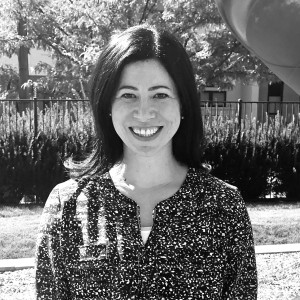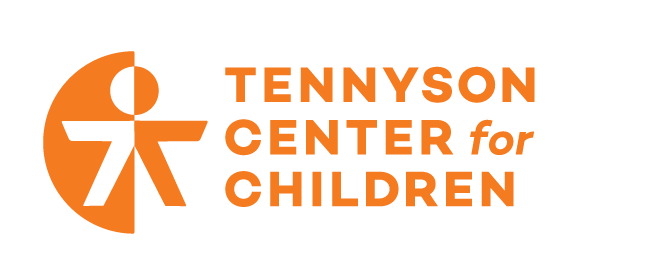From Hospital Interventions to Vaccines: the Expansion of Child Welfare to Focus on Prevention
Imagine you are at your pediatrician’s office to get your child’s vaccines. The pediatrician tells you that the vaccine your child is getting today had to be “watered down” because there wasn’t enough to go around. Instead of getting the full, recommended, proven dosage, everyone gets only a little something of what’s really needed. Or what if the pediatrician tells you that you are too late; the vaccine was needed five years ago and because your child did not receive it, he or she now has the illness it was designed to prevent?
We understand intuitively that vaccines are made to work at the right time and with the right dosage. I’m not a doctor, but I know that giving a child a watered-down vaccine is just not going to work. I also know that after the child already has the disease it is too late.
Yet, in the child welfare sector, we sometimes water down our “vaccines”—or don’t deliver them at all.
Without question, those of us in the child welfare field want healthy, safe kids. Yet sometimes we can’t deliver the necessary “vaccines” to prevent the opposite of health and safety This can be due to children living too far away in rural areas, not enough trained staff, funding or insurance issues, long waitlists, and more. However, many of these obstacles exist in the medical field; yet there are no doctors offering watered down vaccines or services.
There are children and families in the child welfare system who don’t receive the right “dosage” of the help they need or at the right time. They may also have to wait too long to find the “full dose” vaccine. With this, mental and behavioral health symptoms worsen, kids fall behind in school, people become isolated, and families give up hope that their lives can be better.
Those of us who work in the field know that not getting the right help a family needs at the right time can lead to child neglect and abuse, or even the unthinkable – suicide or death. Every single family deserves excellent care, to have their needs met with the right “dose”, and not get lost or overlooked in the welfare system. We want nothing less for our own families; Tennyson wants nothing less for all children and families.
Like many of us at Tennyson, I entered the child welfare field because I care deeply about people and want every child and family to be safe, healthy, and happy. For years, I worked as a child and family therapist, working with families in their homes. Although no family was the same, quickly I noticed some common themes:
- Poverty
- Multi-generational trauma
- Single parent households
- Overwhelmed families
- Lack of support systems and connections to their communities
- Difficulties getting services, healthcare, and information
- Neglect
I never doubted the love and commitment shown by families to their children, or how hard they were working for a better life. Frequently, had someone helped more effectively and sooner, they likely would never have needed to see me in the first place. Or go to the hospital, or foster care, or residential treatment. They couldn’t get that recommended, timely “vaccine” of support, and what they did get was watered down and not enough.
Today Tennyson is thinking about these underlying causes differently. What began as an orphanage in 1904 is now a provider of residential and behavioral treatment for children from extreme neglect and abuse. We provide community based therapeutic services, an accredited K-12 school ,and day treatment services. The kids served at Tennyson need a safe, stable place to heal and grow, and I’m proud to say they receive what they need to do these things properly.
After 115 years, Tennyson is expanding upon its original vision to be a provider of “vaccines”: prevention and early intervention services that can keep more kids from having to go through child welfare. I’m personally excited to be joining Tennyson at this time as we grow our work with our Colorado communities. We’re thinking about this prevention and early intervention initiative as “REWIRING” the child welfare sector in order to improve our current system.
Tennyson will always provide care and treatment to those who need it, without falter. However, we are also working to prove earlier, targeted, and creative interventions and partnerships to help families sooner. Healthy families mean thriving communities and fewer children entering the child welfare system. By proving that “REWIRING” the system works, we will demonstrate that redirecting federal, state, and county dollars from later stage, expensive treatments to early intervention and prevention will prove better outcomes and a more efficient use of funds. Instead of waiting until everyone needs the “hospital” interventions, we can provide full-strength preventative care “vaccines” earlier to the kids in Colorado.
We will always need “hospitals” and need more full-strength “vaccines”. I’m happy that Tennyson is committed to both, and will provide services across the spectrum, from early childhood prevention through adulthood; for every kid forever.
Megan Vogels, MA, LPC, NCC is Tennyson’s Chief Strategy Officer, leading the “Rewiring” initiative and Tennyson’s Impact Department. Megan has her Masters degree in mental health counseling from Boston College and is a Licensed Professional Counselor in Colorado, as well as a National Board Certified Counselor. Megan has worked in the field of child, adolescent, and family mental health for over 15 years. With a focus on understanding trauma and families, Megan has extensive experience building and running therapeutic programs in the Denver area. In September she joined Tennyson Center for Children as the first Chief Strategy Officer, tasked with helping with the Rewiring Child Welfare initiative.






